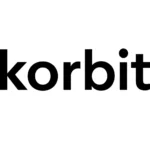TSMC is continuing to expand its influence in the AI sector, following its exclusive production of AI chips for NVIDIA and AMD. The semiconductor giant is now partnering with ASIC design service firm Global Unichip to develop critical peripheral components for High Bandwidth Memory (HBM) used in AI servers. This collaboration has already secured a significant order for the base die of the upcoming HBM4 generation.
Neither TSMC nor Global Unichip has commented on the order specifics. However, industry insiders note that the growing demand for AI is driving a surge in high-speed computing (HPC) and HBM requirements. This trend has prompted major memory chip manufacturers, including SK Hynix, Samsung, and Micron, to increase investments in AI engines, leading to a current shortage in HBM3/HBM3e production capacity.
As the AI chip manufacturing process moves to the 3nm generation, existing HBM3/HBM3e technologies may no longer suffice due to their capacity and speed limitations. Anticipating this, memory chip manufacturers are ramping up efforts to develop HBM4, aiming for mass production by the end of 2025 and shipments in 2026. The JEDEC Solid State Technology Association is concurrently working on new standards for HBM4, including relaxing stack height limits to accommodate advanced packaging technologies.
The most significant advancement in HBM4 is the introduction of a logic IC at the bottom of the memory stack to enhance bandwidth transmission speed, which is a crucial development for the new generation. Industry reports suggest Global Unichip has secured a pivotal order for designing this interface chip for a major DRAM manufacturer, with final designs expected next year. Production will utilize TSMC’s 12nm and 5nm processes, with design projects starting in the latter half of the year, promising a substantial boost in revenue.
As the industry transitions to HBM4, the need for smaller interface chips to increase transistor capacity will likely lead more memory manufacturers to collaborate with Global Unichip and TSMC, potentially enhancing Global Unichip’s profit margins significantly.




